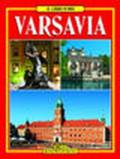
POWER AND ORGANIZATIONS
Clegg Stewart R. Courpasson Da
together theory, research and the world of organizations. In addition to being well-grounded, it is not only highly readable, but extremely interesting'
- George Ritzer, Distinguished University Professor, University of Maryland and author of The McDonalisation of Society
'This book offers a comprehensive genealogy of power and organizations. It outlines the complex tapestry of ideas, traditions of thought and empirical research, which constitute the 'state of the art' of this discipline. While the material may be complex, the authors have managed to explain key concepts in a clear and informal way that is richly illustrated with empirical examples. I would confidently expect this work to become the standard point of reference for any post-graduate wishing to engage in research on power and organizations'
- Mark Haugaard, Professor of Sociology and Political Theory, National University of Ireland
'This book tirelessly illuminates the nooks and crannies of the power literature, where the lead author is frequently identified as an earlier visitor, taking readers on an audacious tour of power's multiple conceptualizations and expressions'
- Hugh Willmott, Diageo Professor of Management Studies, Judge Business School, University of Cambridge
'Too often political and organizational theorists have taken separate paths, addressing themselves to different problems and audiences. No more. In POWER & ORGANIZATIONS, Clegg and his associates expose the power dynamics that lie at the heart of all political and organizational arenas, and in so doing, they shed light on the underbelly along with the creative potentialities in organizational life. This book is must reading for students of organizational and political theory who are eager to unite our understanding of how power operates in all contexts'
-Joyce Rothschild, Professor of Sociology, Virginia Polytechnic Institute and State University
'Strange but true -- most studies of organizational hierarchies downplay the issue of power or uncritically assume more is better, while ignoring its pernicious effects. Stewart Clegg, David Courpasson and Nelson Phillips set the record straight, in a book that is sure to become required reading in many sociology, political science, and business classes'
- Joanne Martin, Merrill Professor of Organizational Behavior and, by courtesy, Sociology Stanford University Graduate School of Business, Stanford
'Power is a core concept in organization theory and the social sciences more broadly, yet it is missing from many contemporary debates. This book places the study of power where it belongs: at the forefront of our concerns as organizational researchers. Engagingly written, impressive in scope, and with a clear view of what power means, this book will command a wide audience'
- Royston Greenwood, University of Alberta, Canada
In this tour de force, Stewart Clegg, David Courpasson and Nelson Phillips provide a comprehensive account of power and organizations, unlocking power as the central relation of modern organizations and society. The authors present an excellent synthesis of organization, social and political theory to offer an overview of power and organizations that is historically informed, addresses current issues - such as the emergence of a post 9/11 state of insecurity and its implications for organizations and society - and is comprehensive in scope.
Power and Organizations reviews the evolution of theories on power and organization, presenting not only the theorists who identify power as positive, but also dealing with the negativity of power and the real horror of which organizations are capable, which has thus far been underplayed in organization theory. At the core of organizational power projects are organizational elites, whose politics and projects are examined extensively in the book. The book concludes by examining the implications for organizations and their elites of the trends, tendencies, and theories considered in the course of the book.
This book is required reading for graduate students and researchers in areas such as organization, social and political theory.
Dettagli Libro
- Titolo: POWER AND ORGANIZATIONS
- Autore: Clegg Stewart R. Courpasson Da
- Curatore:
- Traduttore:
- Illustratore:
- Editore: SAGE Publications Ltd
- Collana: Foundations for Organizational Science
- Data di Pubblicazione: 2006
- Pagine: 472
- Formato:
- ISBN: 9780761943921
- Non catalogati - Non catalogati
Libri che ti potrebbero interessare

Varsavia. Ediz. polacca
Lozinska Tamara

Codice Unico appalti & sicurezza. Normat...
Boso Alessandro

Storia di una capinera
Verga Giovanni

Varsavia. Ediz. inglese
Tamara Lozinska

Il sorriso della vita e della speranza
Lucia Sillo

Varsavia. Ediz. russa
Tamara Lozinska

Illegalità sommersa
Maurizio Colangelo

KAM (Kinesologia Applicata Mentale) KAMA...
Mazzoni Riccardo

Fuori dall'inferno
Milena Botta

Scrivere polvere
Semeraro Daniele

Le vie della tradizione campana
Assunta Ponticelli

L'insediamento protostorico di Colle Di ...
Giacomo, De Iuliis






